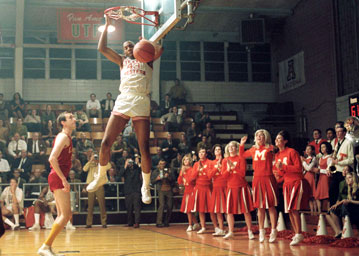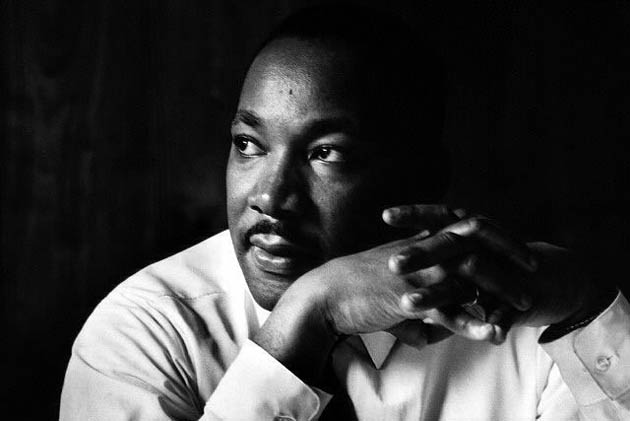“[I]n writing ‘LBJ: Architect of American Ambition,’ Woods has produced an excellent biography that fully deserves a place alongside the best of the Johnson studies yet to appear. He is more sympathetic and nuanced than Caro, more fluid and (despite the significant length of his book) more concise than Dallek — and equally scrupulous in his use of archives and existing scholarship. Even readers familiar with the many other fine books on Johnson will learn a great deal from Woods.” Columbia’s Alan Brinkley (also my advisor) takes a gander at Randall Wood’s new biography of Lyndon Johnson.
Category: The Sixties
The Flowering of Magnolia Conservatism.
“Lyndon Johnson was probably right to fret about the political consequences of civil rights. And even he, who knew more about the intricacies of Southern politics than any 20th-century president, could not have known how complicated the future would be.” By way of Cliopatria, Jefferson Decker, a former managing editor of Boston Review and one of my friends and colleagues here at Columbia, takes a look at two new books on the rise of the Republican Party in the South: Kevin Kruse’s White Flight: Atlanta and the Making of Modern Conservatism and Matthew Lassiter’s The Silent Majority: Suburban Politics in the Sunbelt South.
Primary Numbers.
“Roger Ailes was right when he predicted at the beginning of the television era that in the future all politicians would have to be performers. But politicians are, for the most part, lousy performers.Their advisers are pretty awful at what they do too. In the absence of inspiration, they have fixed upon the crudest, most negative and robotic forms of communication. They’ve made moments like Robert Kennedy’s in Indianapolis next to impossible.” TIME‘s Joe Klein laments the dawn of the soundbite-heavy, market-tested-within-an-inch-of-its-life consultants’ republic.
In the dime stores and bus stations.
“In his conversation with Robert Kennedy, King refused to heed an appeal for moderation: ‘I am different from my father. I feel the need of being free now.’ This impatience for freedom, acted out by the courageous young Freedom Riders, helped propel a reluctant America at least part of the way down the road to racial justice.” In the same NYT Book Review as the Brinkley piece posted on Monday, Columbia’s Eric Foner favorably reviews Raymond Arsenault’s Freedom Riders: 1961 and the Struggle for Racial Justice. And, also in history news, the AP profiles historian, Dylanologist, and recent Bancroft winner Sean Wilentz. “There isn’t much that’s gone wrong with the country’s institutions that a good election can’t cure. Or a few good elections. So I have a kind of willful optimism.“
NOW for the Future.
“If I am right, the problem that has no name stirring in the minds of so many American women today is not a matter of loss of femininity or too much education, or the demands of domesticity. It is far more important than anyone recognizes…It may well be the key to our future as a nation and a culture.” Betty Friedan, 1921-2006.
“First Lady of Civil Rights.”
“Hate is too great a burden to bear. It injures the hater more than it injures the hated.” Coretta Scott King, 1927-2006. Said Rep. John Lewis today, ““She was the glue that held the civil rights movement together.“
Bound for Glory.

Nothing if not textbook and by-the-numbers (Coach Haskell would be proud), Disney’s Glory Road — the story of the 1966 NCAA Champion Texas Western Miners, the first basketball team in tournament history to feature five black starters — still makes for a decent genre matinee. It’s not a movie that’ll light the world on fire by any means, but it hits its beats decently, and benefits from amiable performances from Josh Lucas and Emily Deschanel right on down the bench. I wish the movie had stayed more with the historical game plan it marked out in the opening credits — and that the basketball scenes were more engrossing — but, all in all, Glory Road is a journeyman sports pic.
A synopsis here is probably overkill, suffice to say that a well-meaning disciplinarian coach (Josh Lucas) rides into El Paso, circa 1965, to try to mold a championship basketball team out of a triracial group of college athletes. Do these youngsters overcome their cultural differences, learn there’s a method to Coach’s madness, and become a Team? Do they play well enough to get to the Big Dance? Well, I’ll leave that for you to discover. The main — ok, the only — thing that differentiates Glory Road from its many predecessors is its period flavor. These players don’t just have to worry about the usual assortment of college problems: They’re also caught up in the middle of the civil rights revolution — and the white backlash — across the South, and have to contend with brutal acts of racism off the court as well as the usual opposing teams. George Will recently questioned whether this team was as history-making as it’s made out to be here. Well, ok, but, in a way, that’s beside the point. By bringing race and the civil rights struggle to the fore here, Glory Road acts as a corrective to the main flaw in what’s otherwise a better basketball film, Hoosiers. As Spike Lee points out in Best Seat in the House, it’s hard to watch that film, particularly its final game, and not feel at times that its an uncomfortably white basketball flick.
Speaking of Spike Lee’s book, it also kinda ruined some of Glory Road for me. Therein, Lee (pre-He Got Game) spends a chapter calling out ridiculous basketball scenes in movies — watching unathletic actors dunk on 6-foot rims, etc. And, while the rims look the right height in Glory Road, I have to admit, none of the basketball scenes are all that engaging. They’re cut too close, there’s barely a sense of plays developing, and very few shots seem to leave the actors’ hands to go into the basket. (For that matter, you don’t really get a sense of what various players’ strengths or weaknesses are here, other than that Bobby Joe Hill (Derek Luke) has a nice handle and Nevil Shed (Al Shearer) has a tendency to disappear in the paint. What’s more, Coach’s advice throughout basically can be summed up as “You can do it!” — Not a lot of play-calling going on.) Still, for what it is — an uplifting vignette of sports history — Glory Road is solid enough. Formulaic, sure, but no harm, no foul.
MLK 2K6.

“Returning violence for violence multiplies violence, adding deeper darkness to a night already devoid of stars. Darkness cannot drive out darkness: only light can do that. Hate cannot drive out hate: only love can do that.“
– Dr. Martin Luther King (1929-1968)
The Jester and the Senator.
R.I.P.: Richard Pryor 1940-2005 and Eugene McCarthy 1916-2005.
Uncomfortable analogies.
According to National Security Agency historian Robert Hanyok, his recent work outlining a deliberate NSA cover-up following the Gulf of Tonkin incident has been suppressed by the agency since 2001, in part because of Weaponsgate. “He said N.S.A. historians began pushing for public release in 2002, after Mr. Hanyok included his Tonkin Gulf findings in a 400-page, in-house history of the agency and Vietnam called ‘Spartans in Darkness.’ Though superiors initially expressed support for releasing it, the idea lost momentum as Iraq intelligence was being called into question, the official said.“
